exciting
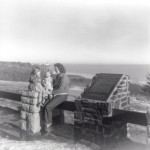
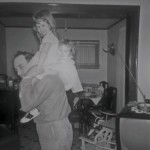 There comes a point after your parent passes away, when you find yourself wanting to pick up the phone and call them, just to ask them a question. It can be anything from family history, to life advise, to simply wanting to share the good times with them. Suddenly, you speak their name as if they are still here, and then, just as suddenly, you realize that they aren’t. That is the place I have found myself several times. Driving by Mom’s house, I thought of her. When exciting things have happened, I’ve thought of calling her. When I had a family question, that she could answer easily, I missed her terribly. And then there were the times I mentioned talking to her in a conversation, only to stop suddenly, shocked about what I had just said. I knew she was gone, but my mind just hadn’t accepted it, I guess.
There comes a point after your parent passes away, when you find yourself wanting to pick up the phone and call them, just to ask them a question. It can be anything from family history, to life advise, to simply wanting to share the good times with them. Suddenly, you speak their name as if they are still here, and then, just as suddenly, you realize that they aren’t. That is the place I have found myself several times. Driving by Mom’s house, I thought of her. When exciting things have happened, I’ve thought of calling her. When I had a family question, that she could answer easily, I missed her terribly. And then there were the times I mentioned talking to her in a conversation, only to stop suddenly, shocked about what I had just said. I knew she was gone, but my mind just hadn’t accepted it, I guess.
It seems like after a loss, you find yourself always looking back on the past…missing the person that is gone. It isn’t about wondering if my mom is ok, because I know exactly where she is and I know she is happy in Heaven. It’s just that with both of my parents, there is so much more that I wanted to talk to them about. There were questions I wish I had asked. Now it’s too late.
My favorite part about looking through my parents things, has been the pictures we have found. Those pictures tell a story that we had never known to ask about. It has made a way for us to see the past and some of what it was like even though we couldn’t ask about it. I guess that is some consolation. The undeveloped film we found has been such a surprise treasure. Seeing our parents when they were young and us as kids has been amazing. Yes, we lived those moments, but now we can re-live those moments. We can see a little bit about our parents personalities from the pictures. We get to see the things they liked to do, and the places they liked to go. I have really enjoyed seeing that young side of them. My sister, Cheryl Masterson and I wondered what it would’ve been like had we stayed in Superior, Wisconsin. For me, the pictures have given us a glimpse of what life was like there. These were things that we would have asked our parents, but never had the chance.
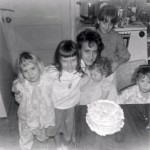
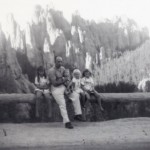
When your parents have passed away, you find so many things that you wish you had talked to them about. There are so many stories about the past, that you can never ask about now. The problem is that you didn’t know that you should ask when you were younger. We are not alone and finding this out after their passing, because I think a lot of kids find it out this way. Today marks the eighth month since my mom, Collene Spencer went to Heaven, and every day brings to mind a question I would ask her…if only I could.
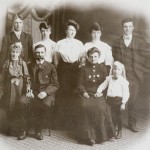 Recently, I received an email on my Ancestry account. It was from a woman named Laura Weber. Through her husband’s DNA, she was able to connect him to the Spencer side of our family, and this brings the family connections to another fork in the road. It seems that Laura’s husband, Nicholas is a descendent of Clifford Spencer, who is the son of William Spencer and Viola Fuller, and is my grandfather, Allen Luther Spencer’s younger brother. Clifford first married a woman named Annie, and they had a daughter named Ethyl Pearl. They were divorced, and he married a woman named Hanna, and they had three children, Loraine, Clifford, and Wanda.
Recently, I received an email on my Ancestry account. It was from a woman named Laura Weber. Through her husband’s DNA, she was able to connect him to the Spencer side of our family, and this brings the family connections to another fork in the road. It seems that Laura’s husband, Nicholas is a descendent of Clifford Spencer, who is the son of William Spencer and Viola Fuller, and is my grandfather, Allen Luther Spencer’s younger brother. Clifford first married a woman named Annie, and they had a daughter named Ethyl Pearl. They were divorced, and he married a woman named Hanna, and they had three children, Loraine, Clifford, and Wanda.
Ethyl Pearl always felt very much alone after her dad left, and while she grew up around her mother’s family, she never really got over losing her dad. She married a man named Claude Coleman, and they had six children, Joyce, Duane, Laura, Claude Jr, Alfred, and Lois. Her husband was not the staying kind either, and in the end, I think it might have been for the best, or at least as far as my Uncle Bill was concerned. For part of their your life, the Coleman children lived with my grandmother, Anna Schumacher Spencer, and the children went to school and helped out on the farm. It was a good life, but like their mother, they missed their dad…no matter what the circumstances of his departure.
Ethyl’s daughter, Lois married a man named Weber. He and Lois had three biological sons, and one adopted daughter. One son, Peter passed away in 1981, and their adopted daughter, 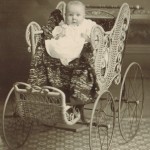 Terry passed away in 2008. The sons who are still alive are Mark and Joe. Mark married a woman named Margaret Mason. They had Nicholas (Nick), and then divorced. It is Nick’s wife, Laura, who made the connection with me, and we are both very excited about this new connection.
Terry passed away in 2008. The sons who are still alive are Mark and Joe. Mark married a woman named Margaret Mason. They had Nicholas (Nick), and then divorced. It is Nick’s wife, Laura, who made the connection with me, and we are both very excited about this new connection.
It is so amazing to me to be able to connect with yet another branch of the family. I hope to have some pictures of Lois in the future, as well as possible introduce the Weber’s to the rest of the family. I have been so excited about the family members I have found through the DNA I sent in to Ancestry. It has opened so many new doors, and there will be more in the future.
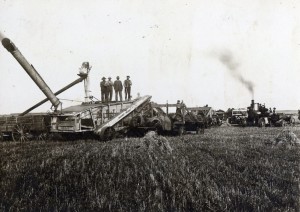 Farm work in years gone by, was a much harder job than it is these days, but with the invention of machinery, things got easier. Still, most people couldn’t afford to own those machines in the early years, so they either did the work by hand, or hired the threshers to come and do it. Soon, most farmers were hiring the threshers to come. It was a lucrative business for someone who had enough money to buy a machine…or better yet, several. I know that those members of my family, who were farmers, did hire the threshers, or else, they had enough money to buy their own machines, but I have to think that most people in those early years did not think the machine was a good value, if a man was going to just use it on their own farm, so the work was mostly hired out.
Farm work in years gone by, was a much harder job than it is these days, but with the invention of machinery, things got easier. Still, most people couldn’t afford to own those machines in the early years, so they either did the work by hand, or hired the threshers to come and do it. Soon, most farmers were hiring the threshers to come. It was a lucrative business for someone who had enough money to buy a machine…or better yet, several. I know that those members of my family, who were farmers, did hire the threshers, or else, they had enough money to buy their own machines, but I have to think that most people in those early years did not think the machine was a good value, if a man was going to just use it on their own farm, so the work was mostly hired out.
When the threshers were scheduled to come to your farm, it was a big day. The women would get up early and start cooking for the men, who would be very hungry by lunch time. 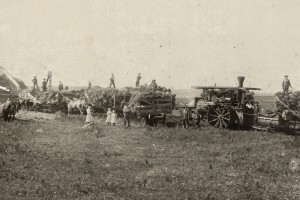 This was heavy work, even with the help of the machinery. Nevertheless, everyone was excited when the threshers came…from the adults to the little kids. I’m sure that being able to watch the big machines working was a novel thing in those early years, and nobody wanted to miss out. Not only that, but everyone wanted to get their picture taken with the workers too, so that they could say they had been there when they were working. It was almost like having a celebrity visit your house, I suppose. It is a day like no other in the year. Everyone wants to be in on all the excitement, and it’s hard to keep the little kids out of the way. Nevertheless, they had to stay out of the way, because the huge machines were also dangerous and could easily kill a small child.
This was heavy work, even with the help of the machinery. Nevertheless, everyone was excited when the threshers came…from the adults to the little kids. I’m sure that being able to watch the big machines working was a novel thing in those early years, and nobody wanted to miss out. Not only that, but everyone wanted to get their picture taken with the workers too, so that they could say they had been there when they were working. It was almost like having a celebrity visit your house, I suppose. It is a day like no other in the year. Everyone wants to be in on all the excitement, and it’s hard to keep the little kids out of the way. Nevertheless, they had to stay out of the way, because the huge machines were also dangerous and could easily kill a small child.
With the excitement, however, comes hard work. When the threshers are done. The grain had to be bagged for storage or sale, and the straw stacked for use in the barns. Nevertheless, it took a lot less workers to harvest the crops, and many farm laborers were not happy about that, because they faced the loss of their jobs. I suppose that with every bit of progress 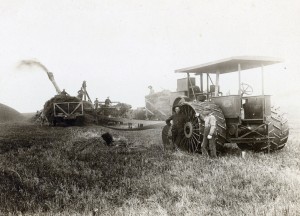 designed to make our lives easier, comes the possibility of job loss. Every time a machine takes over the hard labor, a worker becomes unnecessary. People have to adapt and change, educating themselves to run the equipment so they can move into a job that takes more skill, and thus creates job security. I know that for the farmer, the machines were the best thing to come along. The wages they didn’t have to pay out to the laborers added up to pure profit for them, even with the cost of the threshers. It was a new era, and things would never be the same again.
designed to make our lives easier, comes the possibility of job loss. Every time a machine takes over the hard labor, a worker becomes unnecessary. People have to adapt and change, educating themselves to run the equipment so they can move into a job that takes more skill, and thus creates job security. I know that for the farmer, the machines were the best thing to come along. The wages they didn’t have to pay out to the laborers added up to pure profit for them, even with the cost of the threshers. It was a new era, and things would never be the same again.
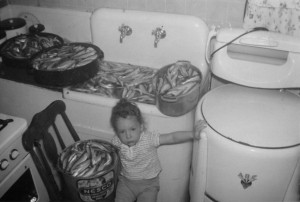 Most little kids don’t really like fish much, unless it is in the form of fish sticks, and I don’t think fish sticks existed when my sister, Cheryl and I were little girls. I don’t know why Cheryl wanted to have her picture taken with all these fish, or if my mom just set her there because she would be a good point of reference to show just how many fish there were here, but I do know that it would have been a good thing that the fish were dead already, because if they had been flipping around, Cheryl would have probably been freaking out for sure…I know I would have, but then I was a baby. The fish were Smelt, and there were lots of them.
Most little kids don’t really like fish much, unless it is in the form of fish sticks, and I don’t think fish sticks existed when my sister, Cheryl and I were little girls. I don’t know why Cheryl wanted to have her picture taken with all these fish, or if my mom just set her there because she would be a good point of reference to show just how many fish there were here, but I do know that it would have been a good thing that the fish were dead already, because if they had been flipping around, Cheryl would have probably been freaking out for sure…I know I would have, but then I was a baby. The fish were Smelt, and there were lots of them.
Rainbow Smelt, which are silver-colored fish about 6 to 9 inches long, are not native to Lake Superior, but rather to the Atlantic and Pacific Oceans. Smelt entered the Great Lakes accidentally in 1912 when they escaped from an inland lake in Michigan where they had been stocked as forage fish. After that, they quickly spread throughout Lake Michigan and were finally discovered in Lake Superior in 1946. By that time, Sea Lamprey, which had also invaded Lake Superior, had begun reducing the number of native lake Trout, so there were far less Trout to eat the Smelt and they began to rapidly increase in number. Every year in mid-April, the Smelt head for the streams to lay their eggs. They are light sensitive, so smelting must be done at night. The best place to go smelting is at the mouth of the streams where they enter the Lakes. The rapids make it more difficult for the fish to jump over them into the stream, and so they are in abundance at that place. Smelting was a big deal at the time we were living in Superior, Wisconsin, when Cheryl and I were little girls.
When April came around in 1957, Mom, Dad, Uncle Bill, and Aunt Doris took Cheryl, me, and our cousin, Pam, and went smelting. Of course, the women pretty much just watched the proceedings, while Dad and Uncle Bill gathered up the buckets of fish that would be our haul for the evening. It was a good run, and the amount of fish they took home was amazing. The fish were then cleaned and frozen for lots of good eating down the road. I’ve never been smelting, at least where I actually participated, but I can imagine that it was pretty exciting to see all those fish all at once. usually think of fishing as a lazy day sport, and normally it is, but during a smelting run, it sounds pretty exciting to me!!

